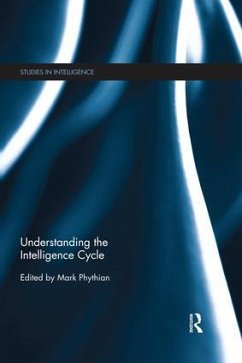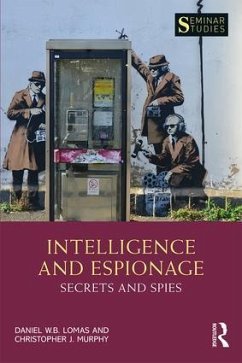
Ethics and the Future of Spying
Technology, National Security and Intelligence Collection
Herausgeber: Galliott, Jai; Reed, Warren
Versandkostenfrei!
Versandfertig in 1-2 Wochen
177,99 €
inkl. MwSt.

PAYBACK Punkte
89 °P sammeln!
This volume examines the ethical issues generated by recent developments in intelligence collection and offers a.comprehenisve analysis of the key legal, moral and social questions thereby raised.














